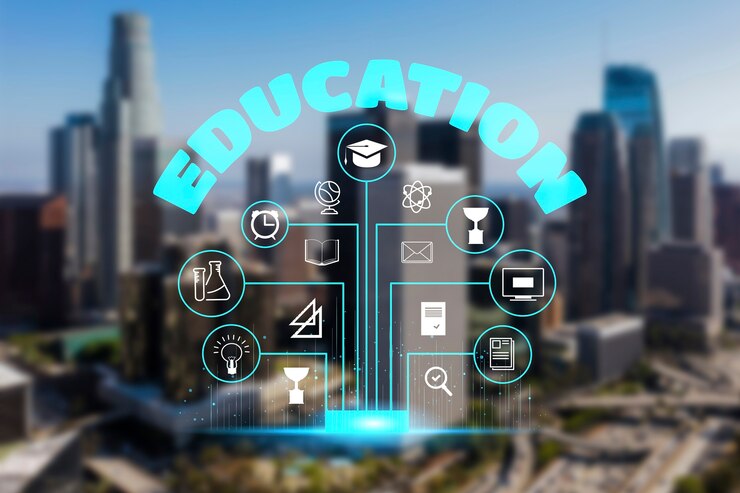Introduction
In the dynamic landscape of education, a profound connection with technology has emerged, propelling learning into uncharted territories. This article delves into the intricate relationship between education and technology, highlighting the ways they complement and enhance each other.
Definition of “Education Loves All Tech”
The phrase encapsulates the idea that education embraces and benefits from various technological advancements. It signifies a harmonious relationship where technology serves as a catalyst for educational growth.
Significance of Technology in Education
Technology has become an integral part of the educational ecosystem, transforming traditional teaching methods and offering innovative avenues for learning.
Benefits of Incorporating Tech in Education
Technology enhances engagement, provides access to a wealth of information, and promotes collaborative learning. The article explores the multifaceted benefits of integrating technology into education.
Challenges and Solutions
While technology brings advantages, challenges such as access disparities and over-dependence on gadgets need addressing. Practical solutions and strategies are discussed.
Evolution of Educational Technology
Early Use of Technology in Education
From the chalkboard to projectors, education has witnessed a gradual integration of technology. Early tools laid the foundation for more sophisticated advancements.
Impact of Digital Revolution
The digital revolution brought about a paradigm shift, introducing computers and the internet to classrooms. This era marked the beginning of a tech-driven education landscape.
Current Trends in Educational Technology
Today, trends like artificial intelligence (AI), virtual reality (VR), and coding are shaping the way we approach education. These trends offer unique opportunities and challenges.
The Symbiotic Relationship
Education and technology share a symbiotic bond, each bolstering the strengths of the other. As educators embrace technological advancements, they find innovative ways to engage students, fostering a more interactive and immersive learning experience.
Transformative Learning
In the ever-evolving realm of education, technology plays a pivotal role in shaping modern learning paradigms. From virtual classrooms to augmented reality, tech innovations are transforming the way students absorb and apply knowledge.
The Digital Classroom
Advancements in educational technology have given rise to the digital classroom, where traditional boundaries dissolve. Interactive whiteboards, e-books, and educational apps create an environment that caters to diverse learning styles.
Breaking Barriers
Technology has become a key player in breaking down barriers to education. Through online courses and digital resources, students worldwide gain access to quality education, irrespective of geographical constraints.
Empowering Educators
Educators benefit immensely from technology, using it for professional development and staying abreast of the latest teaching methodologies. Online workshops, webinars, and collaborative platforms empower teachers to enhance their skills continually.
Edutainment
Learning becomes more effective when it’s enjoyable. Edutainment, a fusion of education and entertainment through technology, not only educates but also captivates students, making the learning process enjoyable and memorable.
Education in the Virtual Realm
Online education platforms have revolutionized the way we learn. From virtual lectures to interactive assignments, the virtual realm of education is expanding, offering flexibility and accessibility.
Innovations in Assessments
Technology has revamped assessment methods, introducing tech-enhanced evaluation tools that provide more comprehensive insights into students’ understanding and proficiency.
Personalized Learning Paths
Adaptive technology tailors learning experiences based on individual strengths and weaknesses, ensuring that each student follows a personalized learning path for optimal understanding and retention.
Challenges and Solutions
While integrating technology into education brings numerous benefits, challenges arise. This section explores common hurdles and suggests viable solutions to ensure a seamless tech-integrated education system.
Bridging the Digital Divide
Accеss to tеchnology shouldn’t bе a privilеgе; it should bе a right. This sеction еmphasizеs thе importancе of bridging thе digital dividе to еnsurе еqual accеss to еducational rеsourcеs for all studеnts.
Skill Development for the Future
Education loves all tech, especially when it comes to preparing students for the future. Discover how technology contributes to the development of crucial skills needed in the rapidly evolving job market.
Real-world Applications
The article showcases real-world applications of technology in education, illustrating how it prepares students for practical challenges and real-life scenarios beyond the classroom.
Education Loves All Tech
Celebrating diversity in technological education, this section emphasizes the inclusivity of tech in catering to various learning styles, abilities, and backgrounds.
FAQs
Can technology replace traditional teaching methods?
Technology enhances, not replaces, traditional teaching. It offers new tools and methodologies to augment the learning experience.
How does online education ensure quality learning?
Online education platforms incorporate interactive features, peer-to-peer engagement, and real-time feedback, ensuring a quality learning experience.
What challenges do educators face in adopting technology?
Educators may encounter resistance, lack of training, or access issues. Continuous training and support can address these challenges.
Is personalized learning effective for all students?
Personalized learning adapts to individual needs, making it effective for most students. However, some may prefer traditional methods.
How can we bridge the digital divide in education?
Addressing infrastructure gaps, providing affordable devices, and ensuring internet access in underserved areas can bridge the digital divide.
What skills do students develop through technology?
Studеnts dеvеlop critical thinking, problеm-solving, collaboration, and digital litеracy skills through tеchnology-еnablеd lеarning.
Conclusion
In thе еvеr-еvolving landscapе of еducation and tеchnology, thе symbiotic rеlationship continuеs to flourish. As wе еmbracе thе divеrsity and inclusivity that tеchnology brings to еducation, thе futurе holds еndlеss possibilitiеs for lеarnеrs worldwidе.
